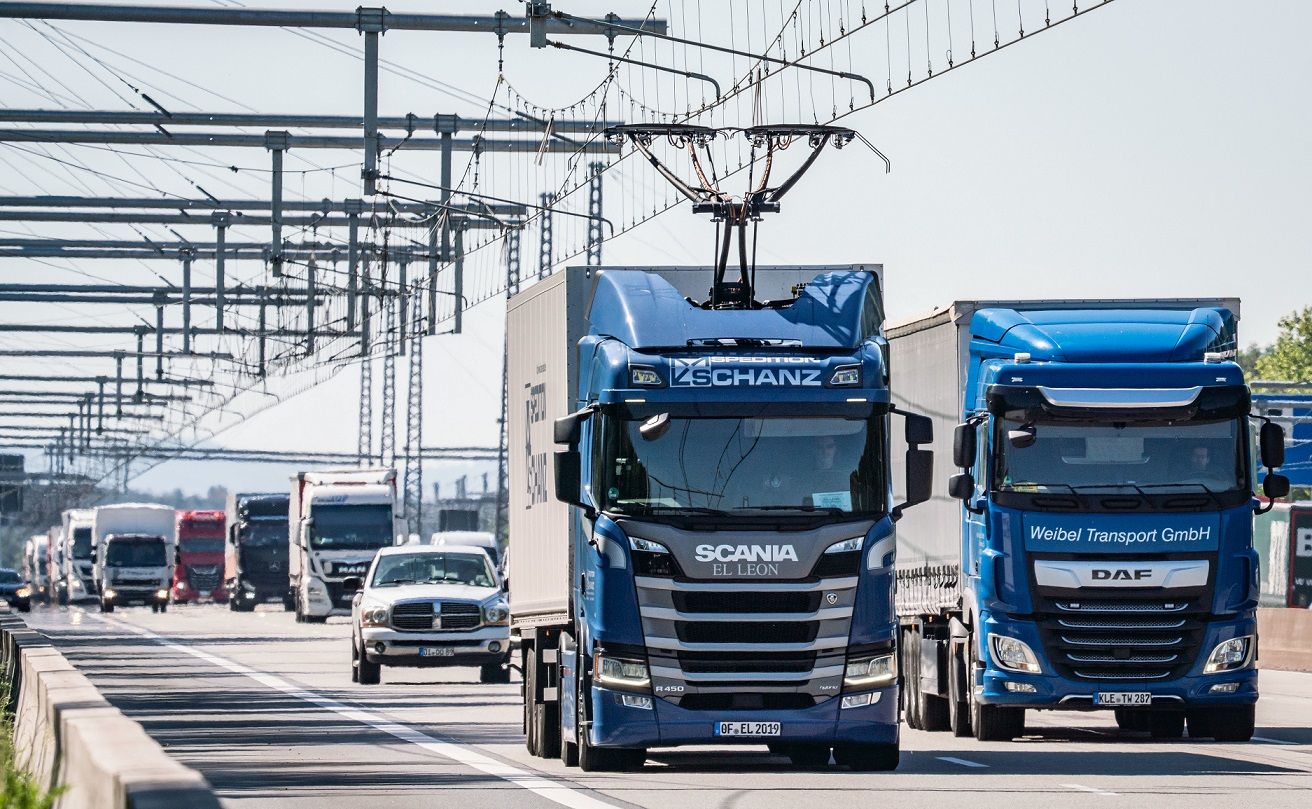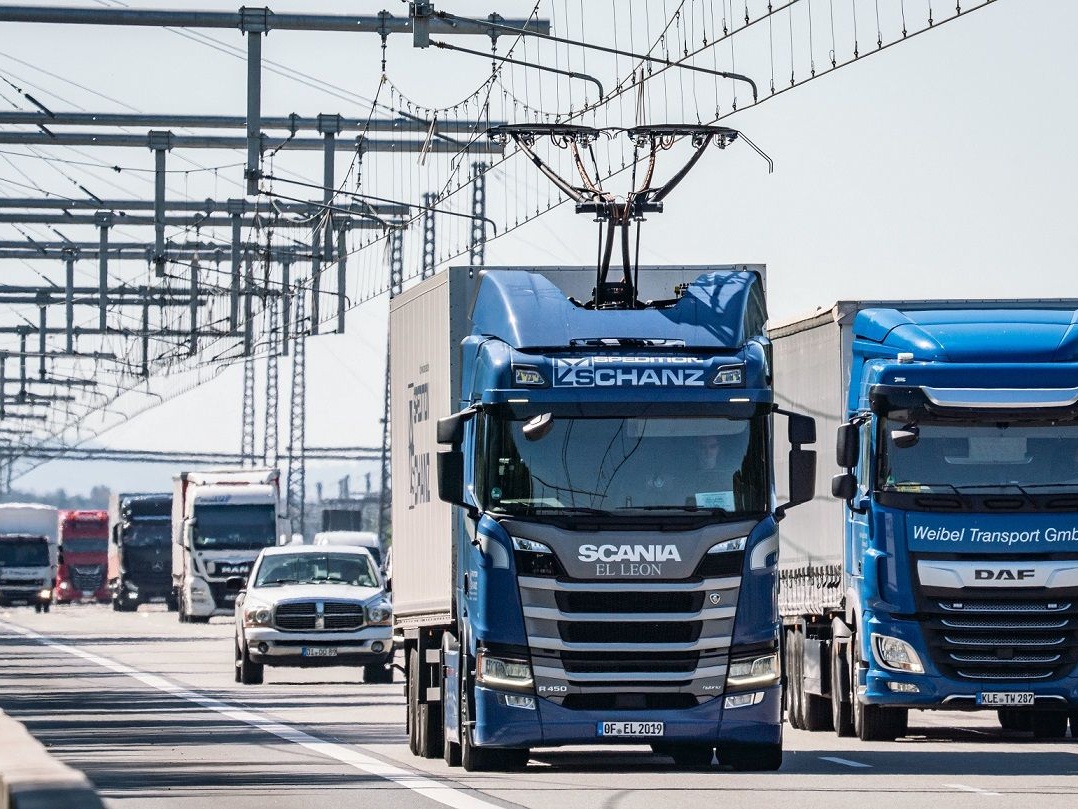
A Scania R450 hybrid tractor unit (M) drives with the pantograph extended on the first German test track for electric trucks with overhead contact lines on the Autobahn. (picture alliance / dpa)
One year after the start of the first German electric highway in the south of the German state of Hesse, the project still cannot go full throttle. Due to coronavirus travel restrictions, only two test trucks are still on the road on Autobahn 5, Achim Reußwig project manager with the Hesse Mobile Transport Authority told dpa. In fact there should be twice as many right now. Special hybrid trucks can refuel with electricity from an overhead line on a 5-kilometer section of the route. This way the batteries are charged at full speed. However, Reußwig does not expect a delay in the test phase, which is scheduled to run until the end of 2022.
He assumes that the necessary data can be collected. "Based on the results, decisions are to be made about whether this is a system to rely and those decisions cannot be arbitrarily postponed into the future." The results are expected in the first quarter of 2023.
The Taxpayers' Association is critical of the multi-million-euro project, which is funded by the federal government and also includes test tracks in the states of Baden-Wuerttemberg and Schleswig-Holstein - the association fears a financial dead end. The Institute for Energy and Environmental Research in Heidelberg, on the other hand, came to the conclusion in the spring that overhead line trucks could be financially attractive as early as 2030. But this would require several billion euros to be invested in the coming years.

Notice: No person, organization and/or company shall disseminate or broadcast the above article on Xinhua Silk Road website without prior permission by Xinhua Silk Road.




 A single purchase
A single purchase









